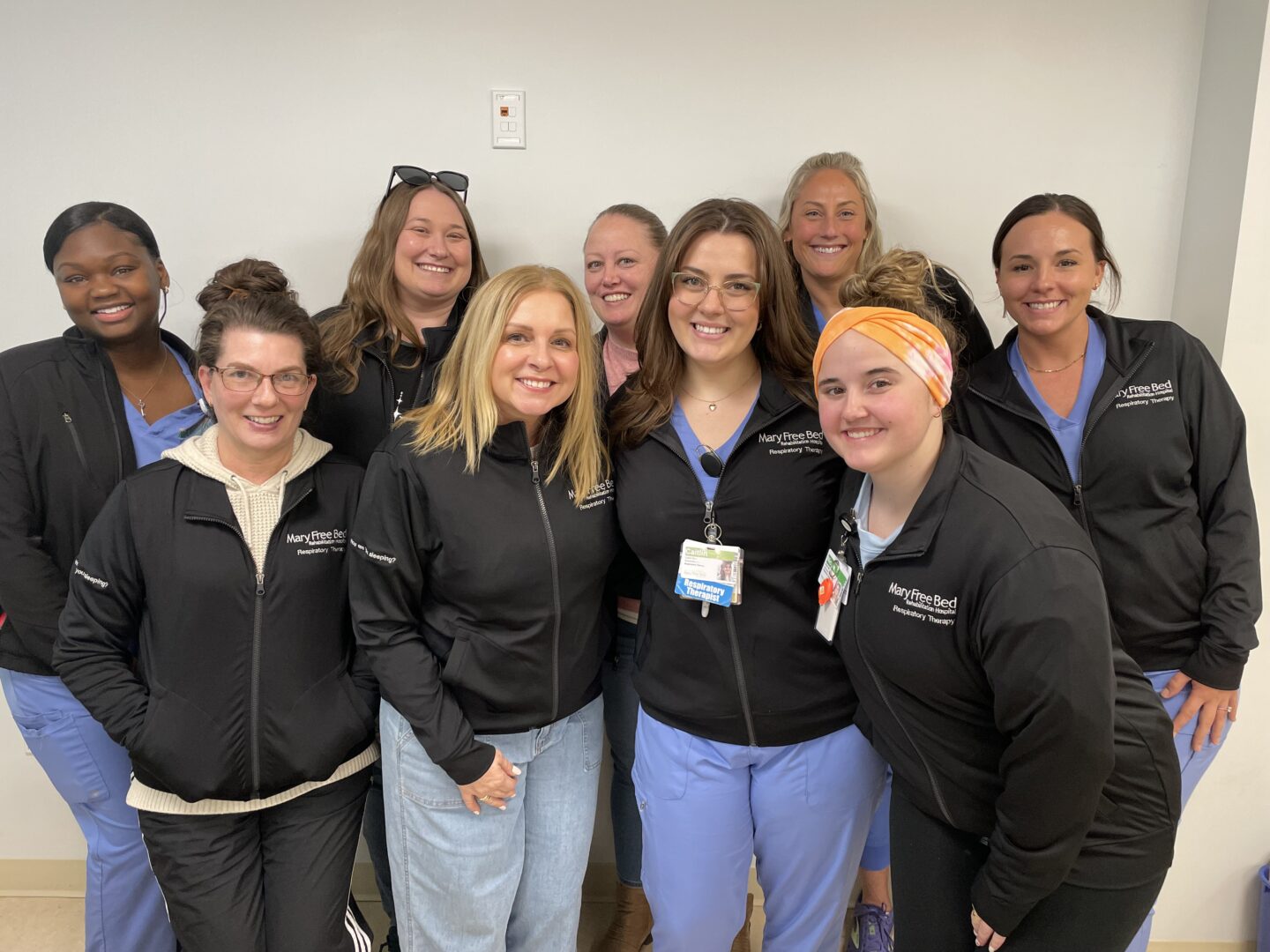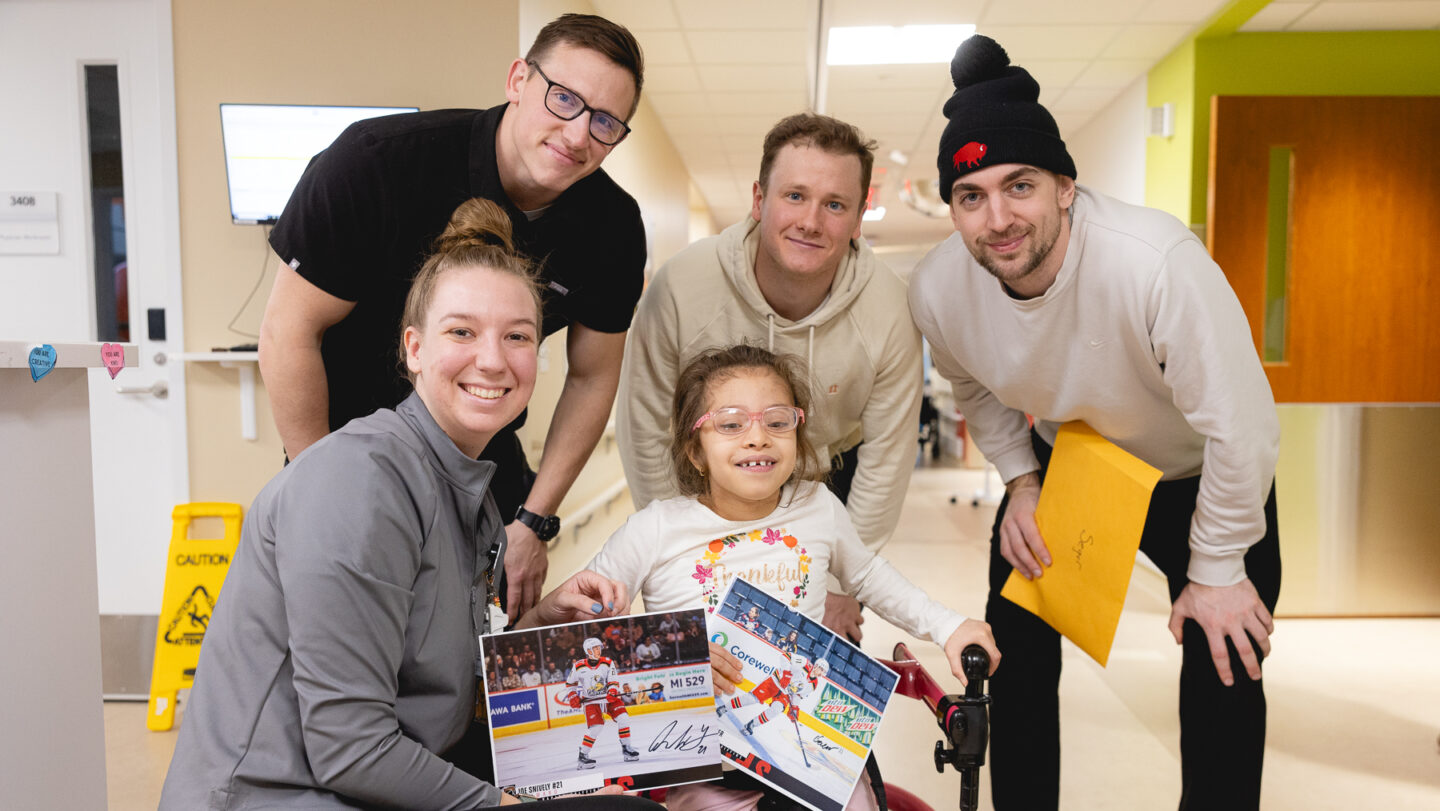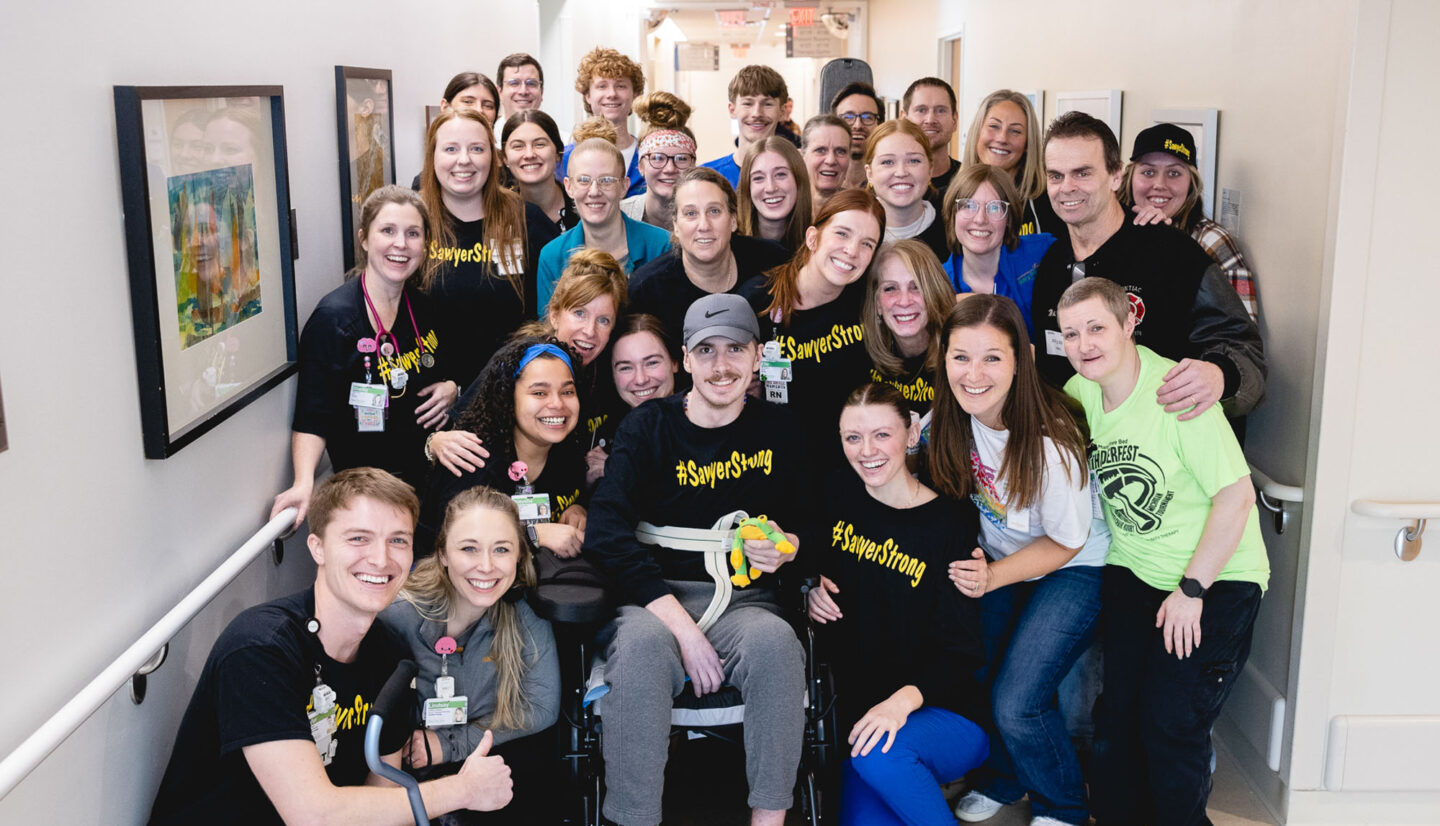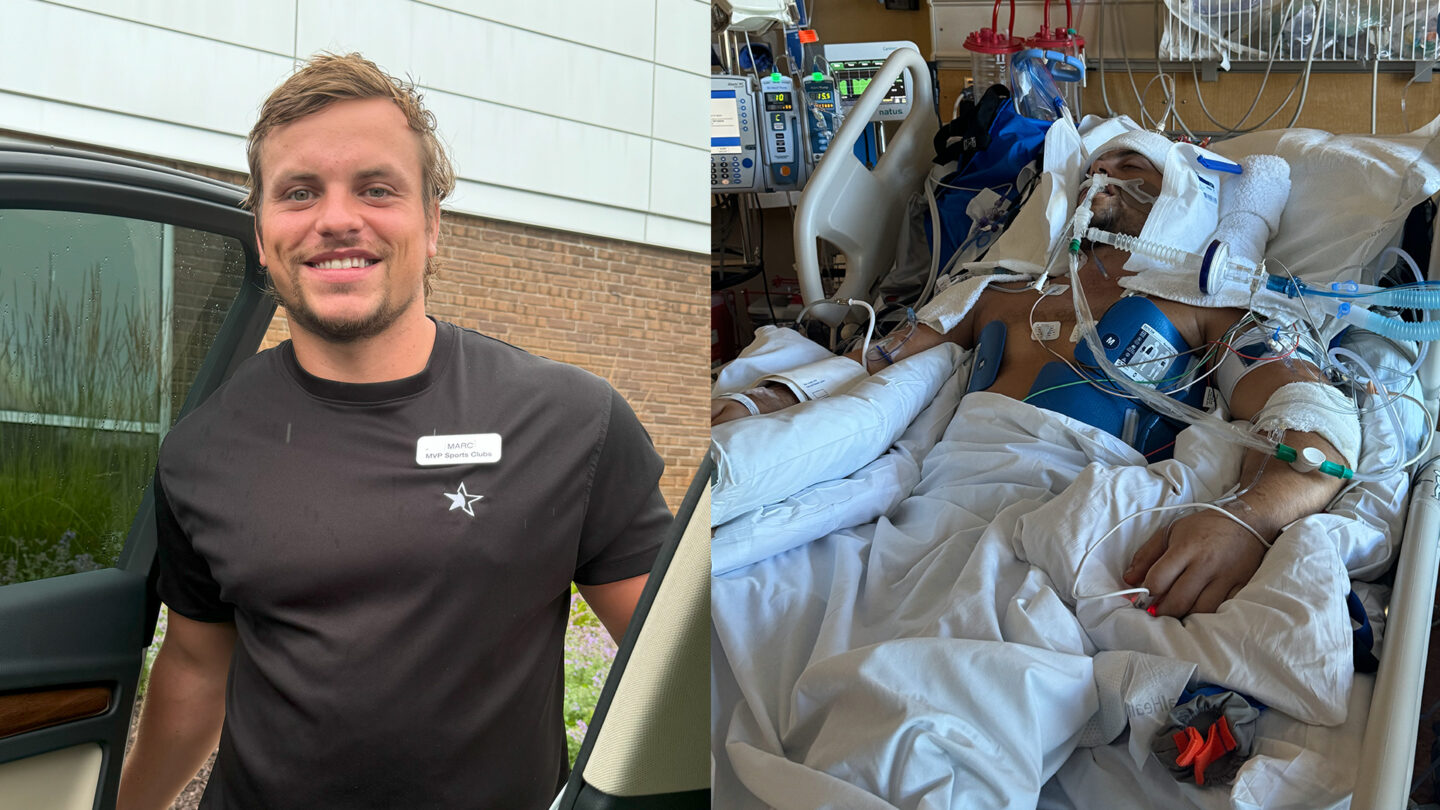Posted on March 12, 2025
Better Sleep for Stronger Recoveries: Mary Free Bed’s Sleep Apnea Program in Action
During National Sleep Awareness Week, Mary Free Bed Rehabilitation Hospital is emphasizing the importance of healthy sleep and highlighting the critical role its respiratory therapists play in diagnosing and helping to treat sleep apnea. With nearly one in three American adults affected by this potentially life-threatening condition, Mary Free Bed is dedicated to providing timely and effective care.
Sleep apnea is defined by repeat episodes of interrupted breathing during sleep, lasting more than 10 seconds each. When these pauses occur at least five times an hour, a sleep apnea diagnosis is typically made. Common symptoms include loud snoring, gasping or choking upon waking, excessive daytime fatigue, morning headaches, and mood changes such as irritability or difficulty concentrating.
What might seem like only a nuisance, sleep apnea can lead to serious health complications, including heart attack, stroke and diabetes. Despite its prevalence, an estimated 90% of individuals with sleep apnea remain undiagnosed.
“Sleep is foundational to recovery and our overall health journey,” said Scott Thomas, respiratory therapist and director of respiratory services at Mary Free Bed. “When we address sleep concerns, we often see remarkable improvements across all aspects of a person’s wellbeing.”
The comprehensive sleep program at Mary Free Bed offers streamlined access to diagnosis and treatment, significantly reducing wait times compared to traditional health care pathways. The team’s proactive approach includes a respiratory risk assessment for incoming patients, with liaisons identifying those at high risk for sleep apnea or struggling with treatment compliance.
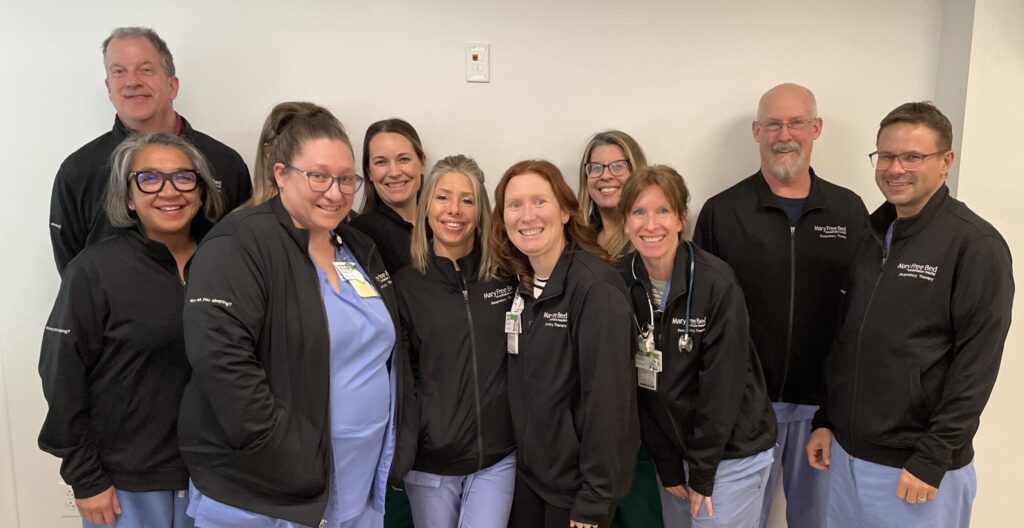
The respiratory therapy program has significantly advanced sleep disorder awareness, education, screening, diagnosis, and treatment. Through proactive outreach, bedside education, and personalized treatment plans, dedicated respiratory therapists empower patients to take control of their health.
After a medical episode brought Leo Hendershot to inpatient rehabilitation at Mary Free Bed in Grand Rapids, his doctors recommended a sleep study. The results revealed a high level of sleep apnea, but after starting CPAP therapy, his apneic episodes dropped significantly.
“If you’re having trouble sleeping, get one of these studies done,” Hendershot advised. “I didn’t realize some of my other health issues were connected to sleep. It’s made a big difference in my overall health and wellness.”
Benefits aren’t just for new sleep apnea patients; longtime users of CPAP machines are benefiting from the sleep program. Gordan Smith had sleep apnea for years before he was retested while in rehabilitation at Mary Free Bed. Thanks to the team, Gordan received his new CPAP machine.
“I used my old machine religiously because I slept so bad,” said Smith. “Mary Free Bed is the most wonderful place; they were so professional renewing my machine and making sure it worked well.”
The growth and impact of Mary Free Bed’s sleep program are made possible by the generous contributions of Mary Schaff, a dedicated advocate for sleep apnea awareness. Her mission was inspired by the tragic loss of her husband, John, who passed away from undiagnosed obstructive sleep apnea just days before his scheduled sleep study.
Since then, Mary Schaff has made significant financial contributions to support sleep disorder resources. She channeled her experience into creating positive change and working with Cleveland Clinic to develop a mobile app that helps individuals assess their sleep health.
Mary Free Bed offers comprehensive sleep apnea testing and treatment as part of its Adult Inpatient Rehabilitation program. Its team of respiratory rehabilitation specialists encourages everyone to prioritize their sleep health, and to use available resources – including the expertise of respiratory therapists and the SLEEP app by Cleveland Clinic, a free tool for assessing sleep health.
Mary Schaff and Gordon Smith joined two respiratory therapists for a livestream conversation to discuss sleep health in more detail. Watch the conversation below:



